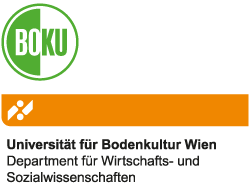Summary
CON-LABOUR is a scientific research project that analyses the possibilities and obstacles for a social-ecological conversion (i.e. industrial transformation) of the Austrian automotive (supplier) industry as well as the role of employees and their representatives in this process. A comprehensive social-ecological conversion must go beyond market-driven and technological solutions such as e-mobility and digitalization of production in order to effectively counteract climate change and excessive consumption of natural resources. By reviewing existing literature, interviews, and group discussions, entry points for questioning the “automotive consensus” are to be identified.
A core assumption of the project is that the participation of employees in the automotive industry – about 5.3% of all employees in product manufacturing in Austria work directly in the automotive industry – and their interest groups (trade unions and works councils) are crucial for the development of alternatives beyond car production and for successful and broadly supported transformation processes.
In this sense, CON-LABOUR examines the existing institutional framework, the crisis perceptions and experiences of employees as well as the social and political power relations in order to determine the conditions of workers participation in industrial transformation processes.
Research team and institutions
The research project is supported by the Climate and Energy Fund (KLIEN) for more than two years, from June 2018 to the end of September 2020.
The project is situated at the Institute for Political Science at the University of Vienna, lead by Ulrich Brand, assisted by Heinz Högelsberger, Danyal Maneka and Enrico Schicketanz.
The project is carried out in cooperation with Melanie Pichler and Nora Krenmayr from the Institute of Social Ecology at the University of Natural Resources and Applied Life Sciences in Vienna and Markus Wissen from the Berlin School of Economics and Law.
Additionally, there is close coordination with the department Environment and Transport of the Chamber of Labour in Vienna.
Research questions and objectives
- Which current debates, proposals and experiences regarding industrial transformation processes exist at the societal, sectoral and company level? What can we learn from historical debates and experiences in Austria? Are there debates and experiences from other countries from which lessons can be drawn for the Austrian situation?
- What are potential entry points to promote debates and strategies that go beyond technological innovation and the modernization of the automotive sector?
- Which instruments and strategies for democratic control and worker participation can increase the feasibility, quality and legitimacy of industrial transformation processes?
- What are the obstacles to industrial transformation processes at different levels and in relation to different actors?
In a broader sense, the project wants to make a contribution:
- to international debates on processes of social-ecological and industrial transformation
- to overcome the frequently asserted dilemma between jobs and the environment,
- to a better understanding of the role of workers in current climate policies and their potential contribution to a socio-ecological transformation,
- to emerging (and forgotten) debates on workers’ participation and economic democracy in transformation processes.



